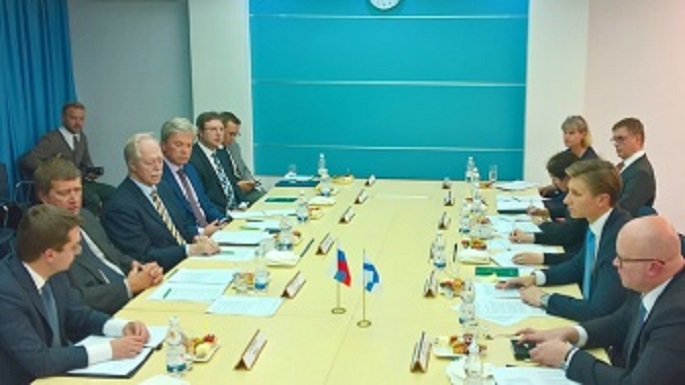Finland, Russia discuss cross-border crime
Published : 04 Oct 2018, 03:24
Updated : 04 Oct 2018, 10:58
Minister of Justice Antti Häkkänenon on Tuesday met with his Russian counterpart Alexander Konovalov in Moscow and discussed various bilateral issues, said the Ministry of Justice in a press release on Wednesday.
They discussed election interference, the number of foreign prisoners in Finnish and Russian prisons, and cross-border cybercrime.
“As cross-border crime is constantly on the rise, we need ever more and stronger cross-border cooperation to tackle it. Finland is committed to promoting cross-border cooperation in criminal matters, and we need Russia to be more closely committed to it as well,” Häkkänen said.
Häkkänen and Konovalov also discussed the number of foreign prisoners in Finnish and Russian prisons and their extradition to their home countries.
The number of foreign prisoners in Finnish prisons keeps growing. To address this development, it is necessary to explore possibilities to facilitate the transfer of prisoners to their home countries to serve their sentences. Transfer of prisoners between Finland and Russia is currently based on the voluntariness of convicted offenders.
“In my opinion, enabling convicted persons to serve their prison sentences in their home countries is an important goal. We must, together, strive to handle these matters more effectively,” said Häkkänen.
An increasingly significant share of crime is nowadays committed in a telecommunications network. New forms of cross-border cooperation are required to be able to combat cybercrime. In particular, it is important to find ways to facilitate cross-border access to electronic evidence.
Häkkänen said, “I think it is important that the international community is, as widely as possible, committed to combating cybercrime. Work against cybercrime has been effectively promoted within the Council of Europe, for example. In my opinion, Russia should also consider its full commitment to this work.”
The ministers also discussed election interference as a phenomenon, the position of Jehovah’s Witnesses in Russia, and the work being carried out against domestic violence, among other things.
During his visit to Moscow, Häkkänen also met the prosecutor general of Russia, the president of the Supreme Court, the chairperson of the State Duma Committee on State Building and Legislation, and representatives of the civil society and businesses.


